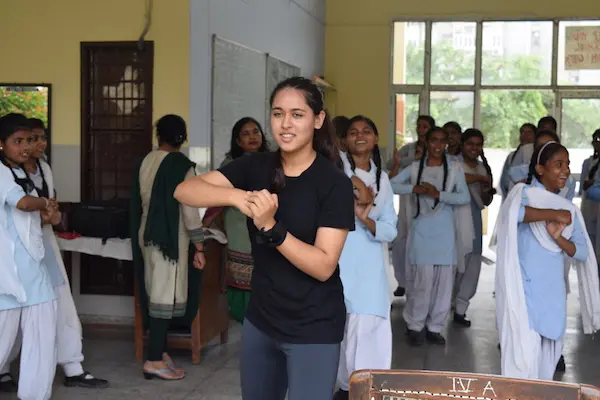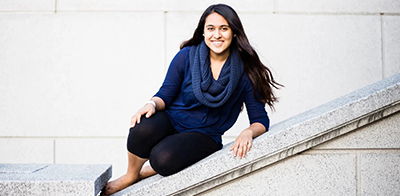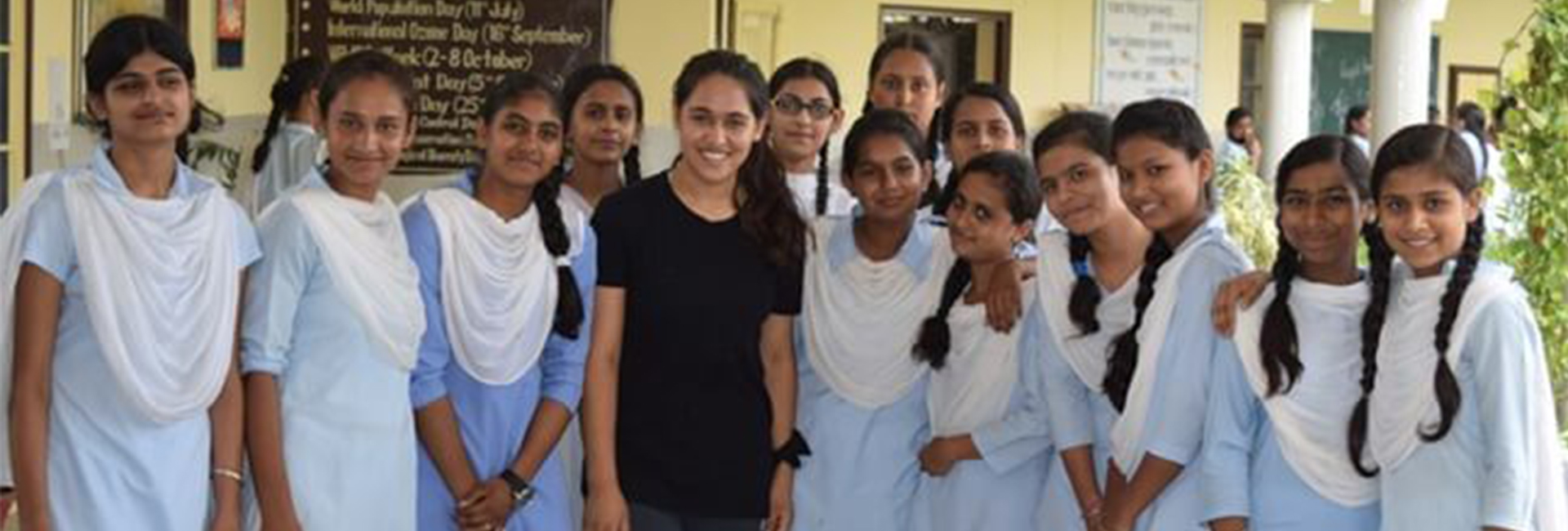(December 13, 2022) “Didi, I need to protect myself.” Pooja Nagpal was taken aback, to say the least, by the diminutive teenager who stood before her, hand in a sling. The girl, Neha, had been beaten by a family member and knew she had to learn to defend herself. Pooja, an Indian-American activist with a second-level black belt in Taekwondo, is the founder of For a Change, Defend, a non-profit that teaches girls self-defence techniques. In 2013, soon after the Nirbhaya tragedy, Pooja arrived in the upper mountain areas of Himachal Pradesh, to take a crash course in self-defence for young girls there.
A determination to prevail
“Neha’s grandmother had told her that girls can’t laugh, her brother got more food from her, she had been told that there was no point in girls being educated past the ninth grade, that she had to wear a veil when guests came home. How does anyone have an ounce of confidence in that environment,” Pooja demands. From that point on, Neha became her most dedicated student, staying back after class to ask questions, determined to perfect every kick and punch.
On Independence Day that year, 250 of Pooja’s students demonstrated in front of an audience. Neha, who was holding the Indian flag in her hand, addressed the crowd, saying, “The time is now. We need to start fighting for women’s equality. Parents, teachers, and family members need to understand the power that girls can bring to the future of India.” Pooja, who was watching, realised at that moment the true power that a fighting spirit can bring.

Pooja Nagpal
Pooja opens her ted talk in Manhattan Beach with a kick and a ‘kihap’, which is a traditional shout and rapid exhalation of breath used in Taekwondo. The sound is as essential to the kick as the movement itself, a means to concentrate a martial artist’s power. “It is a declaration of one’s fighting spirit and the determination to prevail,” she told her audience.
Discovering India
Pooja’s parents were both born in India and hers was a “bilingual household,” the young Global Indian explains. Growing up in Manhattan Beach in the United States, she would listen eagerly as her parents told her stories of the rich, Indian culture, of the “rush of colours and festivities and the euphoria.” More than anything else, however, she loved Indian mythology. She was in awe of the Goddess Durga, who rode into battle on a lion and destroyed demons, who was the protector of all living things. She loved the elegance of Goddess Saraswati, seated atop a white lotus, the Goddess of learning and knowledge. “Growing up,” she says, “These were my superheroes. They are powerful women with a unique, symbolic fighting spirit who help and protect the vulnerable.”
As she grew older, however, the enchantment of Indian mythology gave way to a hidden dark side. She heard stories of violence and discrimination against women and girls. “There are girls who were defeated before they had begun to dream. They are stripped of their fighting spirit. The determination is not to prevail, but to survive.” In 2012, the stories she had heard became more real and frightening than she could have imagined, with the Nirbhaya tragedy rocking the country – and the world. She knew something had to be done.
The time to act
“How could this happen in a country so beautiful and so magical,” she asked. Activists around the world swung into action, all fighting for women’s safety and rights. They worked to raise awareness, towards strength in numbers and changes at the legislative level. Pooja felt this could only be one part of the solution.


Pooja Nagpal
While it was a wonderful effort, the fact remained that women continue to face violence every day and, in most cases, there are no repercussions for the perpetrators. In India, women are unsafe both in private and public spaces, with violence meted out in various forms, including eve-teasing, domestic violence, mental and physical torture, and marital rape. And it was a problem, she soon learned, that was not exclusive to developing countries; there was domestic violence everywhere, from Los Angeles to Ladakh.
Training girls in rural India
In 2013, trying to earn her ‘Gold Award for Girl Scouts, Pooja travelled to Himachal Pradesh with her sister, to teach self-defence at a village there. She arrived there to find young girls giggling and chatting together, much like she did with her friends back home. Pooja was, however, starkly aware of the fact that their “futures were worlds apart.”
Pooja was wary at first, she was not sure how she would be received in a remote, rural region in a developing country. To her surprise, she was welcomed. “I was determined to give the girls what a kihap had given me,” she said, in her TEDx Talk. “A fighting spirit and the determination to prevail.” She worked flexibility, physical strength, self-defence, and mental confidence into her curriculum, spending around three hours a day training the girls.
The girls were weak – physically and mentally. She taught them the kihap. “As the weeks went on, they became louder and stronger,” she recalled, smiling. After class, they would sit down to discuss role models, or the girls would make speeches to their classmates. “Many of these girls had never been asked, ‘What do you want to be when you grow up’?” When she asked a 14-year-old, Rakhi, what she wanted to be, the girl’s eyes were downcast. She was married, she said. She would be a housewife.
For A Change, Defend
The following year, Pooja Nagpal created her non-profit, For a Change, Defend. She returned to various rural schools in India, turning down offers from private schools that wanted her to teach martial arts lessons. “I wished to teach lower income girls, especially in rural areas that tend to be those that need the most help, since, in these areas, cases mostly go unreported,” she said.
Pooja also worked with Kiran Bedi, as she trained over 500 girls and women in various villages and slums. Bedi gave her a valuable piece of advice. “Start with six girls, then go to 60, then 600. Soon, you will have a six million-girl revolution. There is power in acting and power in activism.” She watched the young girls she trained transform before her eyes. “They learned a fighting spirit and a determination to prevail. None of this could have been done without the kihap.”

